After enduring years of brutal conflict, including sieges, airstrikes, and destruction, residents of war-ravaged Aleppo are now working to rebuild their lives independently, rather than waiting for international aid promised by Syria’s new government.
Moussa Hajj Khalil is among many Syrians rebuilding their homes from the rubble of the historic and economically important city, as Syria’s new leaders struggle to kick-start large-scale reconstruction efforts.
“Nobody is helping us, no states, no organisations,” said Khalil, 65, who spent seven years in a displacement camp in al-Haramain on the Syrian-Turkish border.
Impoverished residents have “come and tried to restore a room to stay in with their children, which is better than life in camps,” he said, as he observed workers repairing his destroyed home in Ratyan, a suburb in northwestern Aleppo.
Khalil returned alone a month ago to rebuild the house so he can bring his family back from the camp.
Aleppo was the first major city seized by the rebels when they launched an offensive to topple Bashar Assad in late November.
Assad was ousted less than two weeks later, ending a 14-year war that killed hundreds of thousands, displaced millions and left much of Syria in ruins.
‘Doing what we can’
While Syria lobbies for sanctions relief, the grassroots reconstruction drive is gaining momentum and providing work opportunities.
Contractors labor around the clock to meet the growing demand, salvaging materials like broken blocks and cement found between the rubble to repair homes.
“There is building activity now. We are working lots, thank God!” Syrian contractor Maher Rajoub said.
But the scale of the task is huge.
The UNDP is hoping to deliver $1.3 billion over three years to support Syria, including by rebuilding infrastructure, its assistant secretary-general told Reuters earlier this month.
Other financial institutions and Gulf countries like Qatar have made pledges to help Syria, but are hampered by U.S. sanctions.
The United States and other Western countries have set conditions for lifting sanctions, insisting that Syria’s new government must demonstrate a commitment to peaceful and inclusive rule.
A temporary suspension of some U.S. sanctions to encourage aid has had limited effect, leaving Aleppo’s residents largely fending for themselves.
“We lived in the camps under the sun and the heat,” said Mustafa Marouch, a 50-year-old vegetable shop owner. “We returned and are doing what we can to fix our situation.”


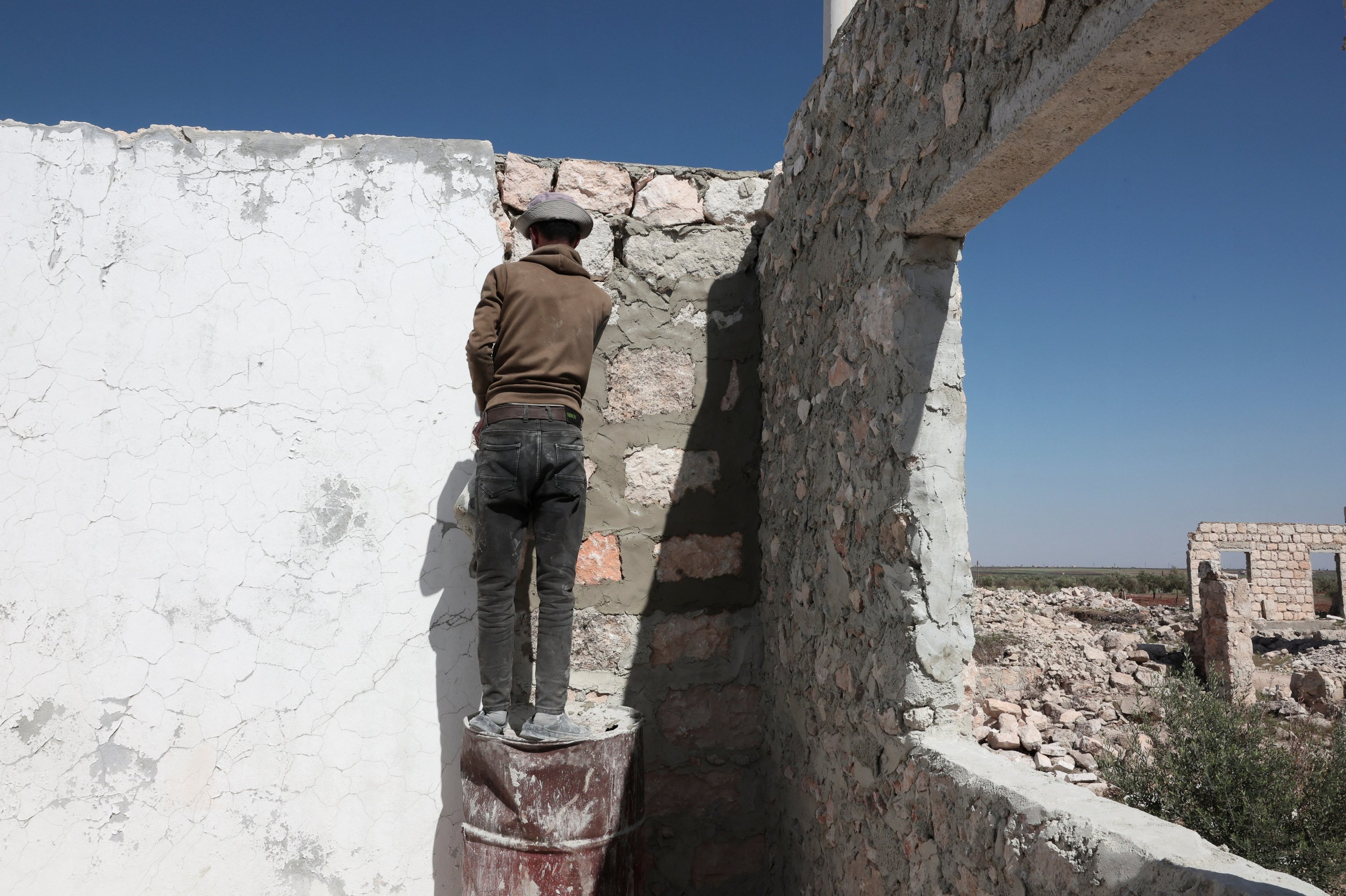
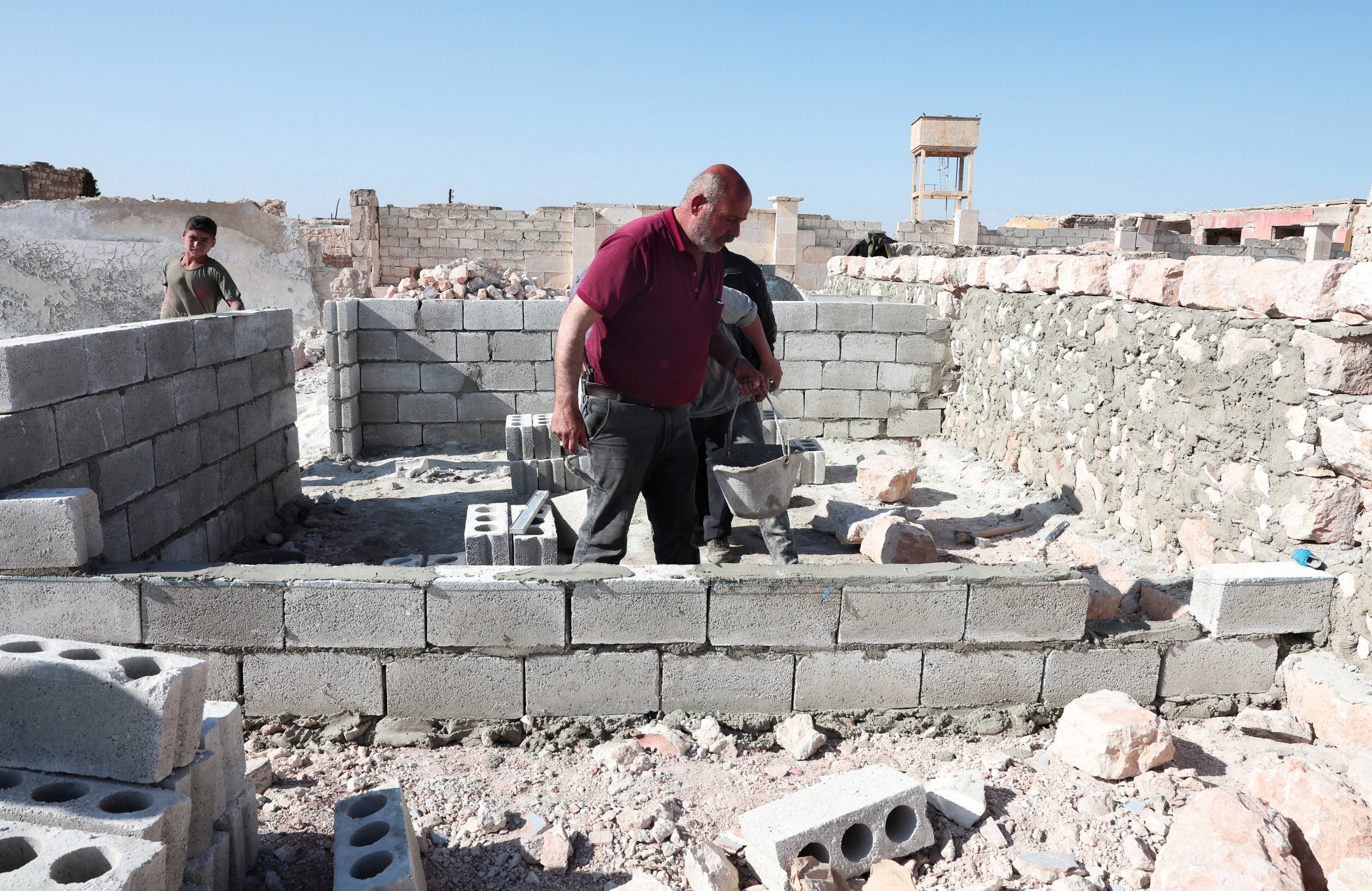
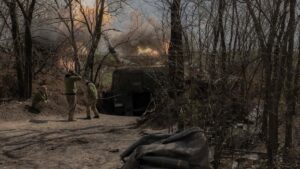

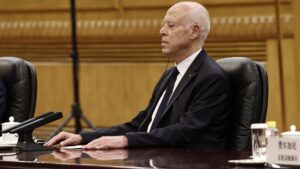



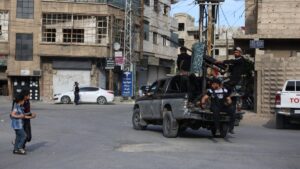
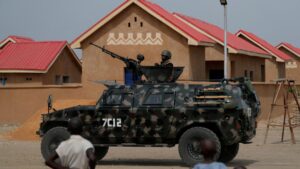
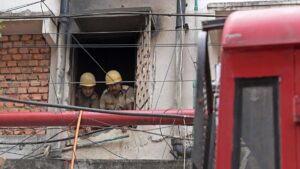
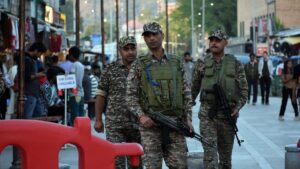
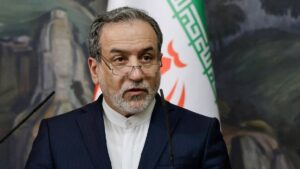



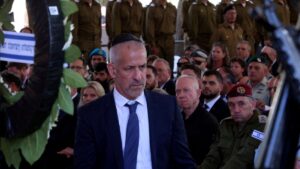
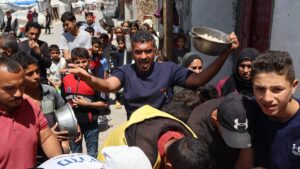
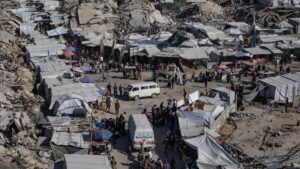
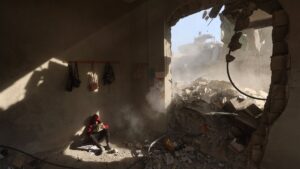
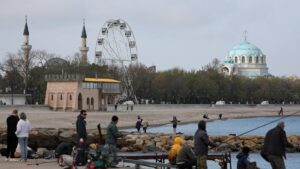

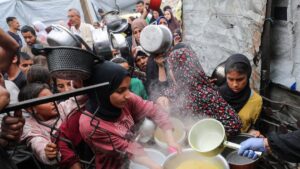

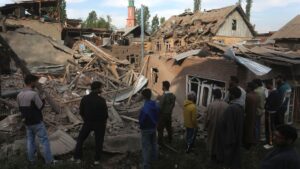
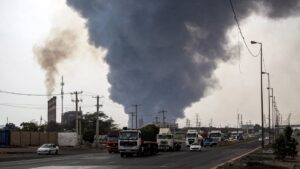


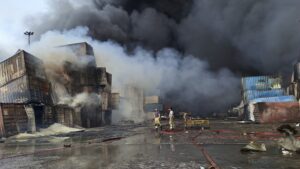


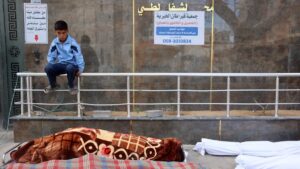

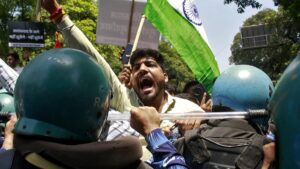

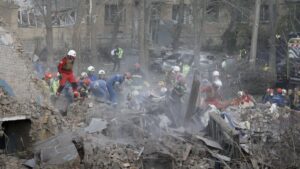



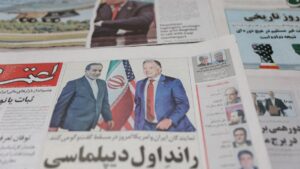

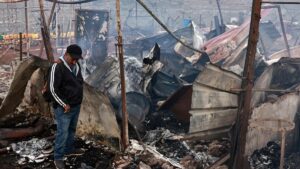
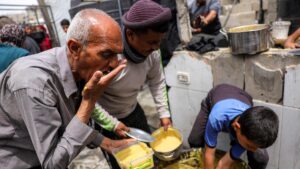
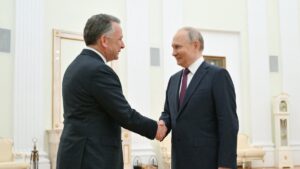
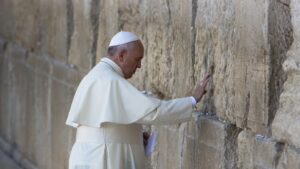
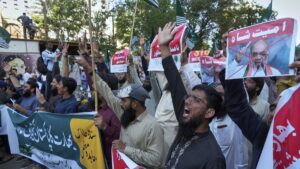
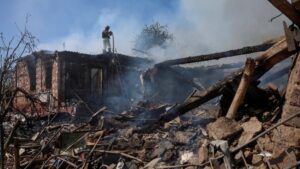
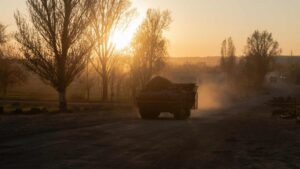
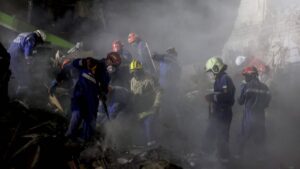

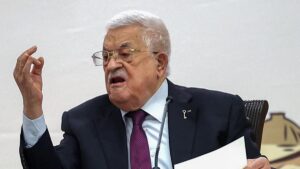
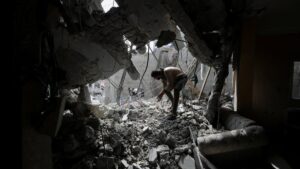
Be First to Comment